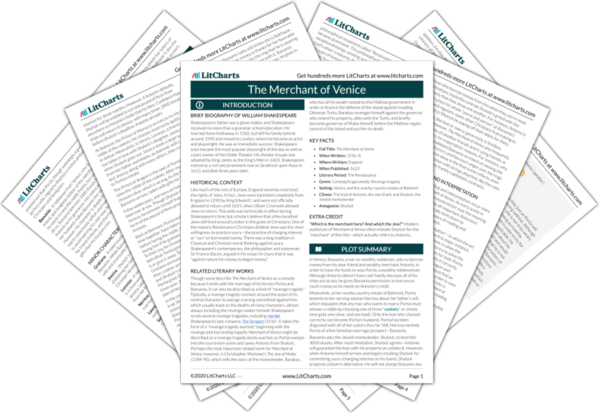AI ToolsNew
Tools to make learning and teaching easier
|
Previous
Symbols
|
Stones, Rings, and Caskets Symbol Analysis
New! Understand every line of The Merchant of Venice.
Read our
modern English translation.
|
Next
All Quizzes
|
The chests that Portia's suitors must open, like the rings that she and Nerissa give their husbands to safeguard, none-too-subtly evoke the female genitalia. In the final scene, when Portia and Nerissa pretend to have slept with the lawyer and the law clerk to whom their rings were given, they make this connection explicit. By using precious objectsand, in the case of the stones and the rings, objects of commercial exchangeto stand for human sex, Shakespeare links the supposedly pure spheres of love and marriage to the play's exploration of money and greed.

Unlock explanations and citation info for this and every other The Merchant of Venice quote.
Plus so much more...
Get LitCharts A+